A few of the greatest movies ever shot almost did not make it to the silver screen. Today, these are considered classic films, but it is truly difficult to believe that they were turned down by studios or delayed to be given the go-ahead.
From comedies that could barely get by to dramas that have redefined the genre, these films were brushed off from the beginning. It is bittersweet that their successes are celebrated because they almost stayed on the shelf forever.
Sometimes, all a movie needs is just one person who endorses a story when everyone else has walked away. These movies tell the story of persistence in creativity, out-of-the-box thinking, and outrageous luck. Let's take a look at 10 legendary movies that studios refused to make, but we all thank them for doing so.
10 great movies that studios did not want to make
1. Back to the Future (1985)

Over 40 rejections plagued Back to the Future, according to Bob Gale, before it became a pop culture staple. Disney found the mother falling for her son subplot too inappropriate, while other studios considered the film too clean for the raunchy teenage comedies of the day. Ironically, Columbia wanted it to be edgier. Universal was the only one that took the risk on the project, largely because of the Spielberg factor.
It's now hard to imagine that one of the defining science-fiction comedy films of the '80s almost never got made. The DeLorean was once deemed one of the weirdest choices for a vehicle, but now it's famous.
2. Pulp Fiction (1994)
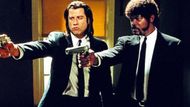
The violent and dialogue-heavy script, nonlinear, too, was a red flag for several studios. TriStar Pictures called it outright "too demented." The constant timeline jumps and casual violence were thought to be box office suicide. But Miramax took a gamble, and it paid off, bagging the Palme d'Or at Cannes and getting seven nominations at the Academy Awards.
The dance scene in Jack Rabbit Slim's, for one, almost went on the chopping block for pacing issues. Several decades later, Pulp Fiction has secured its position as a cult classic; it's taught at film schools and cited in "best screenplay" lists, redefining independent cinema.
3. E.T. the Extra-Terrestrial (1982)

Spielberg’s heartfelt story of a lonely boy and his alien friend seemed so much like sugary syrup for most studios. Columbia rejected it as "a wimpy Disney movie." But Universal spied the emotional pull for its heart. Released in 1982, E.T. became the highest-grossing film of its time. Lesser known is that Spielberg declined to market E.T. as a toy film, quite a bold move insofar as merchandise dominated the era of fame.
The movie remains relevant even today for its understated implications of fractured families and abusive governments, earning it eternal fame, whereas back in the day, the studios would have turned it down.
4. Rocky (1976)
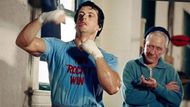
Rocky was almost made without Sylvester Stallone. Studios enjoyed the script but didn't want him as the star and made him an offer of $300,000 to walk away. Stallone, who was a struggling actor with $50 in his account and a dog he couldn't afford to feed, said no unless he was starring. United Artists finally capitulated with a small budget of $1 million.
Stallone's gamble paid off; the film received 10 Oscar nominations and spawned a franchise. Ironically, he eventually purchased the dog he was required to sell. What studios had perceived as a risky vanity project turned out to be one of cinema's greatest tales of an underdog overcoming adversity.
5. The Exorcist (1973)

Studios were ironically afraid of The Exorcist. Adapted from William Peter Blatty's novel, the script was deemed too dark, too religious, and outright offensive. Warner Bros. treaded water, but the popularity of the book left them no choice. Director William Friedkin was pressured by the studio to water it down, particularly the now-iconic head-spinning and crucifix scenes.
Even in the present, the movie is still considered to be one of the most successful horror films of all time. In a bizarre twist of fate, the Catholic Church's early denunciation became cautious acclaim, setting it as a cultural and spiritual touchstone.
6. Raiders of the Lost Ark (1981)
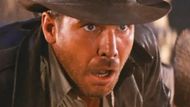
Before becoming an adventure icon, Raiders of the Lost Ark was rejected by most of the major studios. They believed the genre was outmoded and weren't sure Harrison Ford could carry another franchise on the heels of Star Wars. Paramount finally greenlit it just barely due to Steven Spielberg and George Lucas's presence.
What's interesting is that Lucas initially wanted Tom Selleck to play Indiana Jones, but CBS tied him up with Magnum, P.I. Shot on a low budget and tight shooting schedule, the film went on to reinvent the action-adventure narrative. The face-melting climax, deemed "too graphic" by executives, is now one of the most recognisable conclusions in film history.
7. Boogie Nights (1997)
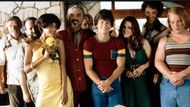
Paul Thomas Anderson's Boogie Nights was a hard sell. Studios were appalled at the setting in the adult film industry and the notorious prosthetic scene. Fox rejected the script as "too sleazy" and "unsellable." New Line Cinema took a risk, dazzled by Anderson's innovative vision. What's interesting about the backstory is how Anderson snuck his short film (The Dirk Diggler Story) into sessions to demonstrate his idea had artistic value.
The film subsequently revitalized the career of Burt Reynolds, although Reynolds despised the movie so much that he dismissed his agent afterwards. Although that, it is currently regarded as a masterpiece of ensemble storytelling.
8. Dumb and Dumber (1994)
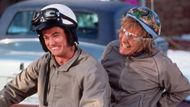
The Farrelly brothers were nobodies when they wrote Dumb and Dumber, and their script tended to get chucked unread. Jim Carrey was their only hope, and even his $7 million fee, after the success of The Mask, almost derailed the movie. Studios feared the humor was too crass. New Line reluctantly agreed, placing their bet on Carrey's burgeoning star.
He even took a small paycheck just to be included in it. The movie grossed almost $250 million at the box office and stands today as a comedy classic despite every studio's better judgment then.
9. The Breakfast Club (1985)
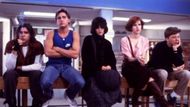
Universal came close to shutting down The Breakfast Club early on, with executives deeming it "just kids talking." They thought that the movie wasn't marketable and were close to shelving it. Director John Hughes wouldn't budge and filmed the entire movie in sequence, something not typically done for studio films. The now-famous characters were written as stereotypes at first, but Hughes allowed a lot of improvisation, infusing them with realism.
Fascinating fact: Judd Nelson almost got himself fired for being "too in character." What studios lacked was an understanding that crowds hungered for reality. Today, the film is etched in history as the voice of teen angst and emotional truth.
10. Little Miss Sunshine (2006)
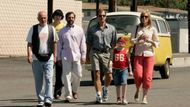
Before it became an indie darling, Little Miss Sunshine was rejected by Focus Features and scores of others for being "too quirky" and "not commercial enough." The original production company even fell apart, leaving the filmmakers to fund it themselves. It wasn't until its Sundance premiere that Fox Searchlight swooped in. Filmed in a mere 30 days, it was financed on a shoestring but picked up four Oscar nominations.
What is great about it is that the cast, including Steve Carell and Alan Arkin, worked for wages well below their market rates for the pure love of the script. The result? A movie that made dysfunction look beautiful.
The journey from script to screen is not always smooth, especially for those that bear the seeds of norm-challenging. These 10 films remind us that the most iconic ones invariably begin life as underdogs, being rejected by risk-averse studios. These stories entertained millions and transformed genres, created careers, and forever changed our perspective on and understanding of what a movie can be.
Maybe next time a studio rejects a bold idea, history will just repeat itself, because sometimes the very films that everybody doesn't want at first are the ones we grow to love.
Love movies? Try our Box Office Game and Movie Grid Game to test your film knowledge and have some fun!
